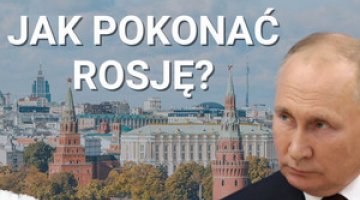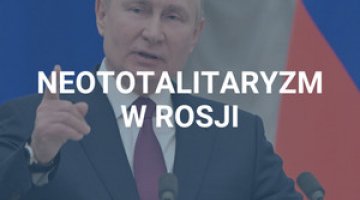Trump’s first sanctions, the EU’s 19th sanctions package: the West increases the pressure on Russia
On 22 October, Donald Trump imposed sanctions on Rosneft and Lukoil – Russia’s two largest oil companies. The restrictions also covered their subsidiaries, amounting to a total of 34 entities. On 23 October, the European Union also expanded its restrictions against Russia by adopting the 19th sanctions package. These focus primarily on the energy sector (including Rosneft and Gazpromneft, as well as a ban on the import of Russian LNG from 2027), the banking sector (including Alfa-Bank), and further restrictions on the export of dual-use goods to Russia (see Appendix for details).
The new Western sanctions carry significant political weight due to Washington’s decision to join the economic pressure on Moscow. Sanctioning Russia’s largest oil companies – which account for around 80% of domestic production – alongside the EU’s accelerated phase-out of Russian LNG purchases, may significantly reduce Russia’s export revenues and place further strain on its public finances, especially given the unfavourable energy market conditions it has faced since the beginning of the year.
Commentary
- The enforcement of sanctions against Russia will be a decisive factor for improving their real effectiveness. Until now, the second Trump administration had not introduced new restrictions on Moscow. As a result, the impact of the sanctions was significantly weakened, as demonstrated by a narrowing discount on Russian crude compared to other oil benchmarks, as well as the open disregard for restrictions shown by Chinese buyers (this is not limited to oil). The clearest example of blatant sanctions violations is China’s import of LNG from Russia’s Arctic LNG 2 project, which remains subject to US restrictions. Restoring the effectiveness of the sanctions regime will require consistent US efforts, including the active prosecution of sanctions violators such as tankers, banks and refineries, as was the case in 2023–2024. Without this enforcement, the impact of the sanctions is likely to be short-lived, and Russian exporters and their clients will quickly adapt to the constraints. Given Trump’s statements expressing hope that the restrictions “won’t last long”, a shift in Washington’s political calculations could ultimately negate their effects.
- In the short term, the sanctions introduced by the West will lead to a decline in the price of Russian oil and raise its export costs. In September, the discount compared to the Western Brent benchmark stood at around $12 per barrel. As a result of the new restrictions, global oil prices rose while prices for Russian grades fell. This will reduce corporate profit margins and state budget revenues. The restrictions are forcing exporters to seek new ways to conduct transactions, including concealing the origin of the oil, which will incur additional costs and diminish the price competitiveness of Russian crude. Moreover, sanctions on Rosneft and Lukoil – if maintained over the long term – could further impact Russia’s oil refining sector by hindering companies’ access to technology and spare parts for refineries.
- The US sanctions present a challenge for third countries whose refineries process Russian crude or are owned by Russian companies. The measures compel entities – particularly in India, China and Turkey – to halt imports of Russian oil, especially under long-term contracts, under the threat of secondary sanctions. While in China’s case, it is likely that these flows will be insulated from the Western financial system, India and Turkey – both of which sell refined fuels on Western markets – are expected to reconsider their current approach. A potential reduction in Russian oil imports by these countries would significantly curtail Russia’s export revenues. The sanctions pressure also targets EU member states. Two of them – Slovakia and Hungary – continue to import crude from Russia, while in others (Romania, Bulgaria and Germany) refineries owned by Lukoil and Rosneft remain in operation. However, it cannot be ruled out that Washington may be willing to introduce temporary exemptions for specific entities, as it has done previously in the case of Serbia’s NIS refinery (see ‘US sanctions against Serbian oil company NIS’).
- The regular inclusion of third-country entities on EU sanctions lists marks a qualitative shift in the European Union’s approach to restrictions. The imposition of direct measures against, for example, Chinese refineries, Asian banks and cryptocurrency exchanges indicates a growing willingness in Brussels to actively pursue sanctions violators, thus signalling a change in its operational paradigm. Penalising non-Russian companies for breaching the sanctions regime increasingly mirrors the US approach of applying secondary sanctions. This intensification of pressure is expected to enhance the overall effectiveness of the EU’s restrictive measures.
APPENDIX. The EU’s 19th sanctions package against Russia
- The European Union has decided to introduce a ban on the import of Russian liquefied natural gas (LNG) under long-term contracts starting from 1 January 2027. Futhermore, six months after the sanctions come into effect (i.e. from 25 April 2026), short-term contracts will no longer be permitted.
- A complete ban on transactions will be imposed on two oil companies – Rosneft and Gazpromneft.
- Restrictions have been extended to a further 117 vessels from the ‘shadow fleet’ (bringing the total number of sanctioned ships to 557), maritime registries providing them with false flags, including those from Aruba and Curaçao, and traders from the United Arab Emirates, Hong Kong and China, along with two Chinese refineries.
- A complete ban on transactions has been imposed on a further five Russian banks (including Alfa-Bank) as well as financial institutions from Belarus (four subsidiaries of Russian banks: Sberbank, VEB, VTB and Alfa-Bank), Tajikistan, Kazakhstan, Kyrgyzstan, the UAE and Hong Kong.
- The use of the Russian payment card (MIR) and the fast payment system (SBP) has been banned.
- Sanctions have been imposed on the rouble-linked stablecoin A7A5 (commonly used in cross-border settlements), as well as its Kyrgyz issuer and the platforms trading it, including those in Paraguay.
- The export of dual-use goods to Russia has been banned, with the list expanded to include additional electronic components, chemicals and services related to geospatial information and artificial intelligence. Sanctions have also been imposed on 45 entities, largely from third countries including China, Thailand and India, that provided Russia with access to these goods.
- In addition, EU sanctions have been imposed on 21 individuals, including Maksim Sokolov (director of the automotive company AvtoVAZ), as well as 11 individuals responsible for the abduction and forced assimilation of Ukrainian children.
- The EU has restricted the freedom of movement of Russian diplomats outside their country of accreditation. They are now required to notify the relevant authorities of the states they intend to visit. Additionally, the member states concerned may impose a requirement for travel authorisation based on supplementary documentation.





